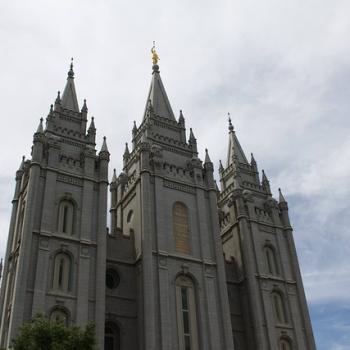LISA ASKS:
When a Catholic marries a Jew, does the Catholic Church recognize that marriage as a sacrament, since Catholicism has roots in Judaism?
THE RELIGION GUY ANSWERS:
No. In the church’s view a marriage between a Catholic and an adherent of Judaism (or any other non-Christian religion) is not a sacrament. This doesn’t mean the church doubts the couple is truly married, nor does it signify any disrespect toward Judaism with which — yes — Christianity has great affinity.
The Canon Law Society of America commentary on the 1983 law code notes there’ve been “extensive changes” toward leniency in marriage rules since the Second Vatican Council, partly because such mixed marriages have become “more commonplace and socially acceptable.”
Technically, marriage with a non-Christian involves “the impediment of disparity of cult.” The local bishop must issue a “dispensation” for “just and reasonable cause” to allow such a marriage in church. This occurs much more routinely than it used to. Thus Catholicism is much more open to intermarriage than much of Judaism (see below).
To have a church wedding, the Catholic party must vow to avoid dangers that might lead him or her to leave the Catholic faith and, canon law continues, “makes a sincere promise to do all in his or her power to have all the children baptized and brought up in the Catholic Church.” The non-Christian party to marriage is informed of these commitments “at an appropriate time.” Before canon law reforms, the pledge about raising children was also required from the non-Christian party, and usually in writing.
Note that those same requirements hold when a Catholic marries a baptized Christian from a different denomination where there’s no “impediment.” The impediment, however, applies with marriages to those who consider themselves Christians but are not baptized (e.g. Quakers, Salvation Army members) or whose churches practice baptism that Catholicism deems invalid on theological grounds (e.g. those Pentecostals who deny the Trinity or, as of 2001, Mormons).
Helpful discussions of matters like this, written in a manner to aid understanding by ordinary church members, are available at http://canonlawmadeeasy.com. This site notes that “while the church isn’t particularly keen on Catholics marrying non-Christians, we can see that it often permits it.” Further comment observes that if it’s not clear the Catholic party will undertake the required promises the bishop will decline permission for a church wedding. Also “if the non-Catholic spouse is clearly hostile to Catholicism, to the Catholic party’s continued practice of the faith after the marriage, or to the notion that the children of the marriage are to be raised Catholic, the bishop will be hard-pressed to find any justification.”
Catholic weddings are bound to observe “canonical form.” Except in extraordinary circumstances this means the service occurs in a Catholic church, witnessed by a priest or deacon, and without a non-Catholic minister jointly officiating in the actual marriage rite (as opposed to other parts of a service). Church law forbids holding two separate wedding ceremonies to get around interfaith complications.
So much for Catholicism. Understandably, a Catholic-Jewish marriage is a far bigger problem for the Jewish minority. In Judaism’s Orthodox and Conservative branches, rabbis are directed not to sanction or participate in interfaith weddings, and the practice is generally frowned upon by most in the more liberal Reform Judaism. The prohibition follows unbroken tradition since biblical times (see Deuteronomy 7:3-4). A central Orthodox body, the Rabbinical Council of America, declares that a Jew in a mixed marriage is “ineligible for Jewish communal leadership,” and condemns rabbis who officiate at mixed weddings.
American Judaism faces intense debate over how to handle interfaith couples in a context of assimilation and decline. All indications are that most children in interfaith marriages will not be effectively raised Jewish. A major survey of American Jews last year showed how rapidly matters have changed. Among Jews who have married since 2000, 58 percent have a non-Jewish spouse, compared with just over 40 percent for those married in the 1980s and only 17 percent for marriages prior to 1970.
Catholic parish priests or diocesan officials are happy to explain questions and deal with complications in particular cases. The U.S. church posts information on marriage at www.foryourmarriage.org.










